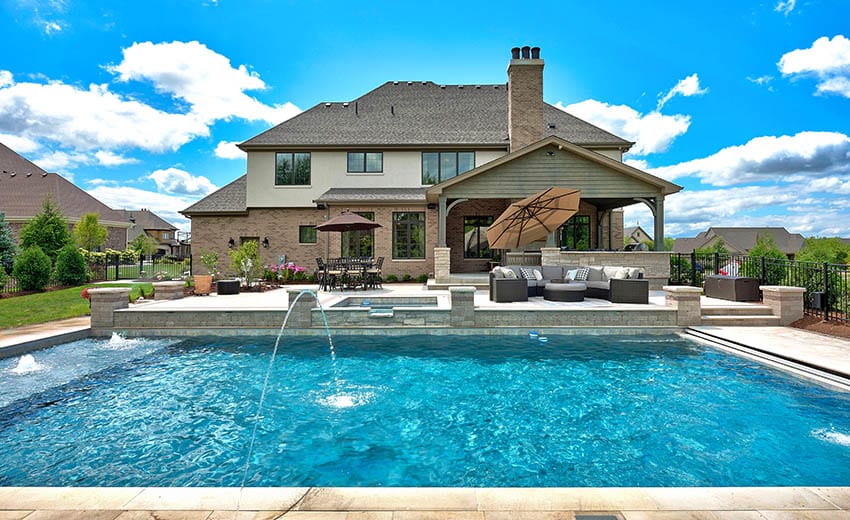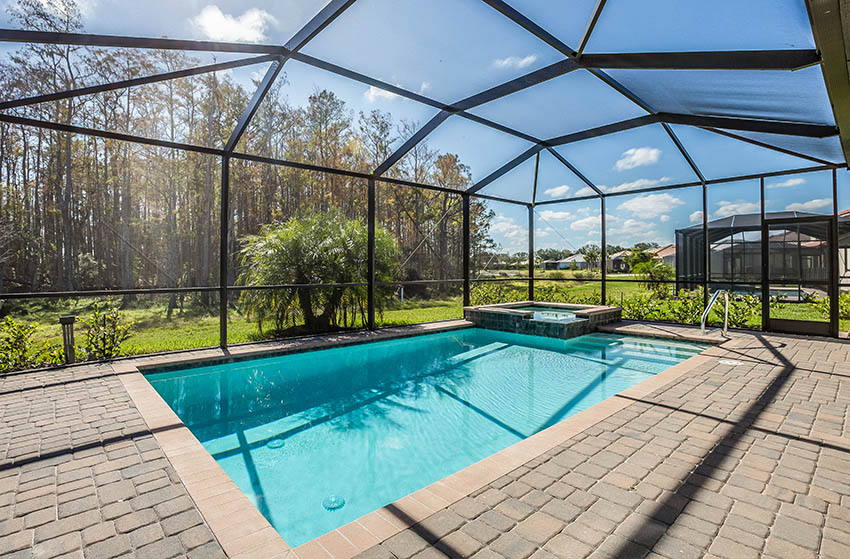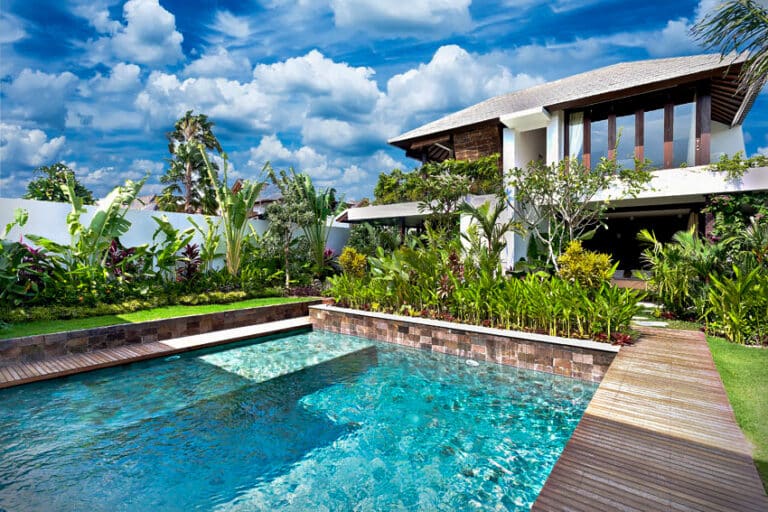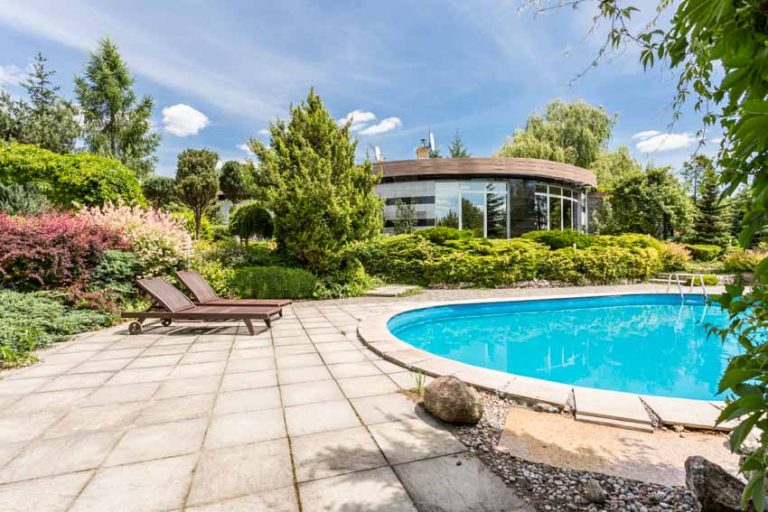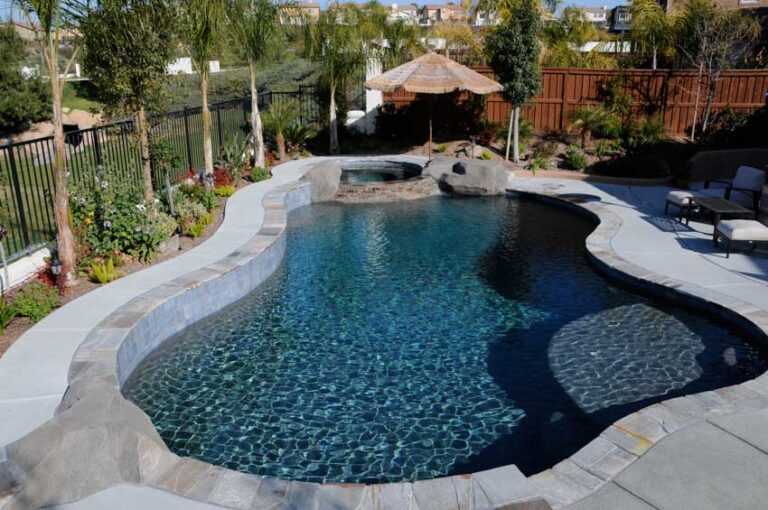Saltwater vs Chlorine Pools Pros and Cons
Welcome to our saltwater vs chlorine pools pros and cons including differences in cost, installation and maintenance. 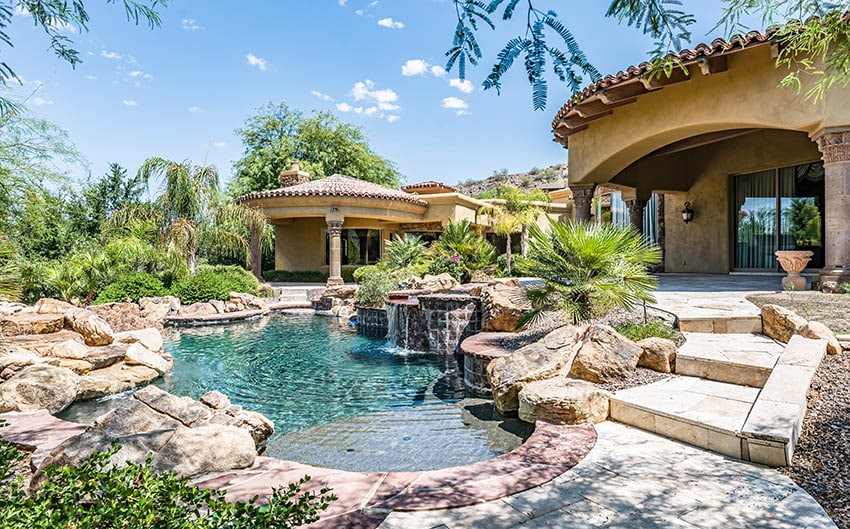
Saltwater and chlorine pools are the most common pool systems. Whether it’s an in-ground or on-ground pool, we all need to understand how best to keep the water clean and safe.
However, when it comes to these two pool types, there are various pros and cons that most people consider. The latter is often dangerous to handle and even store. It can cause irritations to your eyes and skin.
Therefore, many people prefer saltwater pools. That’s because they boast incredible advantages over the chlorinated pools.
Each type of pool has some ups and downsides you ought to consider before deciding which one to buy. And to help you out, this guide highlights the pros and cons of each, including other relevant information. [toc]
Differences Between Saltwater vs Chlorine Pools
Usually, freshwater chlorine pools come to many people’s minds whenever they want to set a pool in their backyards.
Still, saltwater pools remain popular as a result of their low chemical content and easy maintenance. Here are the complete differences between the two pools you should know.
Saltwater Pools
Unlike what most people think, this outdoor fixture don’t entirely contain seawater. They may require adding salt to the normal water in the pool to certain levels that are pretty less saline than the ocean water.
It’s also incorrect to assume that these are chlorine-free. Even if you fail to add commercial-grade chlorine to these pool systems, they’ll still contain the said chemical.
That’s because they tend to form this chemical naturally through electrolysis. Add pool-grade salt to your chlorine generator. The machine runs the salty water via two plates that are electrically charged.
So, it converts saltwater to sufficient amounts of the chemical, keeping the water clean. This makes it easier to get balanced water, and the pool will demand very little attention and chemicals than those that contain chlorine.
The installation of these pools tends to be complicating. Therefore, they are more expensive than their freshwater counterparts. You’ll also find their maintenance quite costly.
Chlorine Pools
As for a chlorine pool, you must add a sample and balance it with a chlorine tablet or liquid. Besides, you can adjust calcium hardness, alkalinity, and pH levels of the water.
Although the saltwater type contains this chemical, the creation process differs from that in a traditional chlorine-pool. Each pool system is sanitized using a similar substance. However, the chlorine available in saltwater may vary from what you’ve been used to.
When it comes to installation and maintenance, these pools are pretty easy and less costly than their saltwater counterparts. However, the chlorinated systems tend to demand a lot of monitoring to make them clean. But you won’t find them highly chlorinated.
You’ll have to add a commercial-grade chlorine tablet, liquid, or stick to the pool water every week. Additionally, this type of pool needs other alkaline balancing substances to curb any potentially harmful effects this may have.
Usually, this type of pool emits hazardous fumes, which gives the pool a distinct smell, causes eye redness and respiratory irritation. Therefore, it’s vital to store it carefully for safety. You’ll find these pools with high concentration than their saltwater counterparts.
That’s why the water feels harsh and irritates the skin, eyes, and hair, primarily when you use them more often. If this pool system is what you like, you’ll need bath and hair products with unique chlorine-removing abilities.
Salt Water Pool Pros and Cons
Before you buy a saltwater pool, here are the pros and cons you need to be aware of:
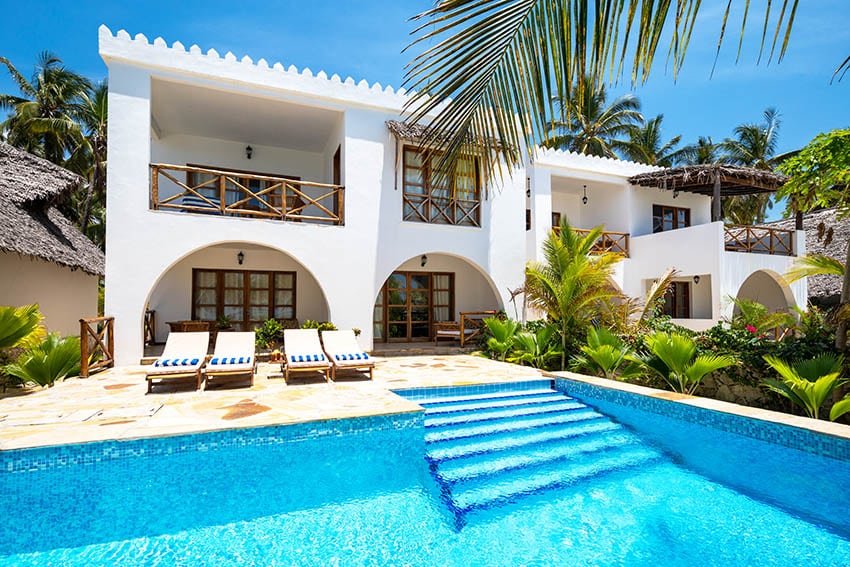
• The daily operational costs are low
• Since the salt cells present only produce chlorine when needed, the pool is far easier to maintain than the chlorine-pools.
• The low chlorine concentrations make this pool gentler and safe on the skin, eyes, and hair.
• Research shows that they tend to be safer than traditional chlorinated pools. They also have complicating storage and handling of hazardous chemicals. Similarly, exposure to the chlorine water system could lead to long-term risks to your health.
• Saltwater lagoon swimming pools can replicate the look and feel of swimming in nature.
• The water feels softer; hence many people find them desirable.
Cons
• The initial installation and overhead costs for are higher, hence pretty expensive than the traditional chlorinated pools.
• Since the pools usually require experienced technicians to inspect and correct minor problems, these systems are quite complex to handle than their counterparts.
• The salt present may damage certain materials that make up the pool. An excess of salt may result in a discoloration of swimming pool finishes. Therefore, it’s critical not to use certain fixtures, liners, heaters, underwater lighting, and masonry products.
• They tend to use a lot of electricity, raising your utility bills.
Chlorine Pool Pros and Cons
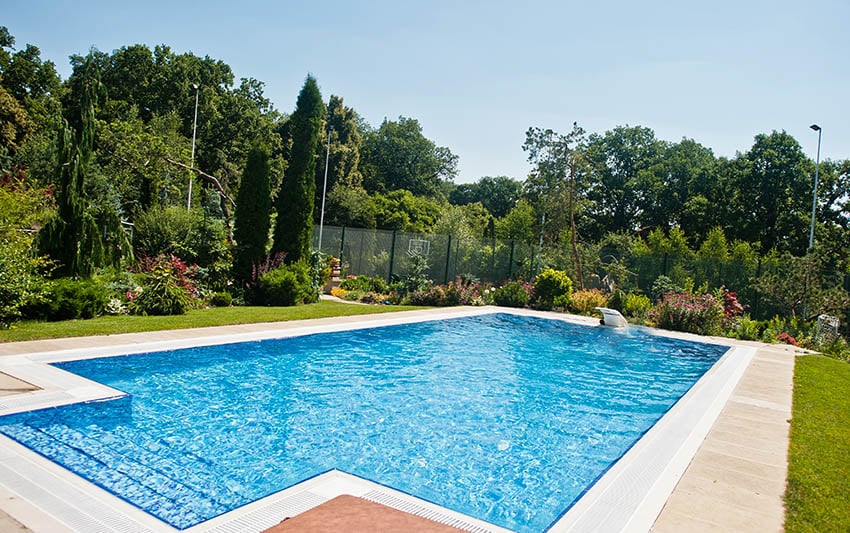
• The initial installation cost is low
• Requires fewer energy costs
• Excellent for do-it-yourself fixes
• Requires very less equipment to run
Cons
• Chlorine concentrations are higher. Hence they can be harsh to your skin, eyes, and hair.
• Demands special handling and equipment for the storage of dangerous chemicals.
• The daily operation costs may be higher.
• Needs regular monitoring of the water quality
Convert Chlorine-Pool To Saltwater Cost
Basing on traditional chlorinate pools’ health risks, converting them to saltwater systems can be a perfect option. And if you are wondering how much it’ll cost you, this section will help you out.
You’ll need to pay a minimum and maximum amount of $500 and $2500 respectively to convert your traditional chlorinated system to a saltwater type. However, this may vary depending the swimming pool size and type.
Saltwater vs Chlorine Pool Installation Cost
A chlorine type has the lowest initial and general installation costs. And the kind of water system you decide influences the installation costs and overall maintenance and servicing costs.
You can expect to pay about $100 on top of the installation costs of a chlorine water system as it doesn’t require special equipment. As for a saltwater, be ready to spend about $2500 more on the installation due to its complexity and demand for special equipment like chlorine generators.
Saltwater vs Chlorine Pool Maintenance Costs
Saltwater options require a lower cost for annual maintenance. You can spend roughly $100 every year to maintain them, while a chlorinated pool demand maintenance costs of about $1000.
Which Is Better Saltwater Or Chlorine-Pool?
Deciding which is better between the two can be easy and trickier at the same time.
However, your decision depends on various factors such as cost, maintenance, healthy, and many others. Check out our comparison below and made a final decision to suit your needs.
Maintenance
Everyday maintenance required by saltwater pools is minimal since chlorine or other chemicals are not bought. They also maintain balance for about two weeks.
On the other hand, chlorine pools require less equipment maintenance but lots of activities to maintain them.
Safety and Healthy
Since saltwater type have only fewer chlorine levels, you’ll find them with zero toxic fumes. They also don’t need special storage needs, and the water is generally gentle on skin, hair, eyes, and respiratory system.
As for chlorine, it irritates the eyes and skin, causing redness, dryness, itchiness, and burning. The chemicals also require special storage tools, and the fumes can be dangerous when inhaled. This can be especially true if you have an indoor pool where fumes can build up. So, if you’re sensitive to chemicals, saltwater would be the best option.
Return on Investment
Although saltwater systems have higher initial costs, they’re much less expensive to maintain for a long time. So, they can be an excellent investment that can give you better returns than the traditional chlorinated systems.
With these factors and many more, you can make well-informed decisions on which one is the best between these two options.
If you’re looking to create your own outdoor swimming area, there are swimming pool design software options that can help. These programs allow one to create designs exactly to the layout of your backyard.
What did you think about these saltwater vs chlorine pool pros and cons? Do you have a favorite when it comes to these two pool types? Let us know what you think in the comments section.

